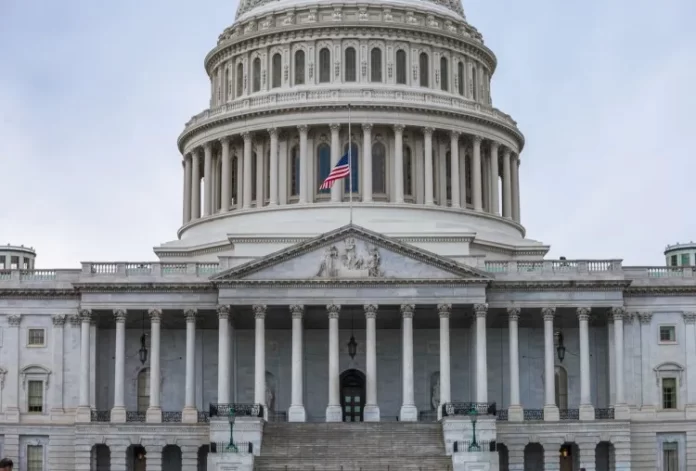The Republican-controlled U.S. House of Representatives passes sweeping tax and spending bill advancing President Trump’s policy agenda, adding trillions to national debt
The Republican-controlled U.S. House of Representatives on Thursday narrowly passed a comprehensive tax and spending bill designed to implement many of former President Donald Trump’s key policy initiatives. The legislation, approved by a 215-214 vote, delivers new tax breaks, boosts military and border enforcement spending, and is projected to increase the federal debt by approximately $3.8 trillion over the next decade, according to the nonpartisan Congressional Budget Office (CBO).
The bill fulfills several of Trump’s populist campaign promises, including tax relief on tips and car loans, expanded military funding, and enhanced border security measures. However, it also tightens eligibility for social programs such as Medicaid and food assistance, raising concerns over its impact on lower-income Americans.
The CBO analysis indicates the bill would reduce income for the poorest 10% of households while benefiting the wealthiest 10%.
House Speaker Mike Johnson hailed the bill as “generational, truly nation-shaping legislation” after making last-minute adjustments to secure support from various Republican factions. The bill now moves to the Senate, where Republicans hold a slimmer majority and plan to propose amendments during what is expected to be weeks of debate.
The legislation extends corporate and individual tax cuts first introduced in 2017 and repeals many green-energy incentives introduced under the Biden administration. It also relaxes regulations on firearm silencers and funds a significant expansion of immigration enforcement, aiming to deport up to one million individuals annually.
Democrats strongly oppose the bill, labeling it a tax scam that disproportionately favors the wealthy at the expense of working Americans. Democratic Representative Jim McGovern criticized the package as benefiting Trump’s millionaire and billionaire allies.
The vote comes amid rising concern over the U.S. debt, which recently surpassed 124% of GDP, leading to a downgrade of the country’s credit rating by Moody’s. The CBO warns that interest payments on the debt now consume one in eight federal dollars and could rise to one in six within a decade due to demographic trends and increasing health and pension costs.
Market reactions have been mixed, with the U.S. dollar declining over 10% since January and 30-year Treasury yields reaching their highest levels since late 2023. Stocks remained mostly stable, though solar energy shares, which would lose government subsidies under the bill, were notably impacted.
JPMorgan Chase CEO Jamie Dimon expressed support for the bill but acknowledged it would likely increase the federal deficit. Meanwhile, concerns persist among some Republicans about the bill’s fiscal impact, with dissenting voices warning the legislation sets the country on a risky financial path.
The bill also raises the federal debt ceiling by $4 trillion, a measure Republicans argue is necessary to avoid a potential government default later this year. Critics caution that failure to pass the bill could lead to higher taxes for many Americans as the 2017 tax cuts expire at year-end.
To appease conservative factions, the bill accelerates work requirements for Medicaid recipients and penalizes states that expand the program, potentially removing millions from coverage. It also raises the cap on state and local tax deductions to $40,000, a change that disproportionately benefits wealthy households in high-tax states.
Additionally, the legislation renames tax-free savings accounts for children as “Trump Accounts,” underscoring the bill’s strong association with the former president’s policy platform.
The bill now awaits Senate consideration, where its future remains uncertain amid calls for revisions and ongoing political debate.




